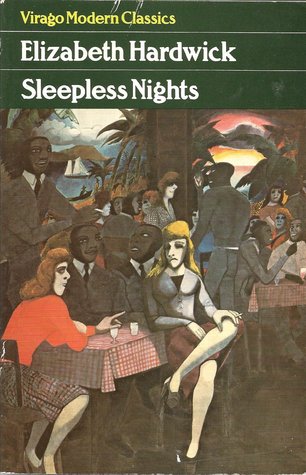I was chatting with two women a a literary event this spring. They were both in their 50s, full of knowledge, and talking about their experiences with Stendhal syndrome, based on Stendhal’s experience when visiting Florence. It’s a (medically debated) condition of being physically overcome by a piece of art to the point of being dizzy, overwhelmed, weeping. (From Wikipedia: “The staff at Florence’s Santa Maria Nuova hospital are accustomed to tourists suffering from dizzy spells or disorientation after viewing the statue of David, the artworks of the Uffizi Gallery, and other historic relics of the Tuscan city.[1]“) One of the women said it had happened to her twice in her life, once seeing the opera made of Toni Morrison’s Beloved, and the second time on seeing a Rothko painting, from across the room. The other woman had also experienced it with a painting. They turned expectantly to me, and I, embarrassed said that I hadn’t ever experienced it. But I thought it was better than lying about having experienced such a thing. I’d been dazzled by art, had a physical response to it, but never a kind of reaction they described.

Since then, I do think I experienced something like Stendhal syndrome reading the first 20 pages or so of Sleepless Nights. I didn’t break down weeping, but I felt dizzy, overcome, a little panicked as I moved from sentence to sentence. I couldn’t take the precision, the power of each one, the turns, the unexpected rightness of each image. I was anxious about not being able to take it all in, that I was unworthy or would need to read it a dozen times to take it in. It sounds so dramatic when I set it down like this, and I can’t say that it was pleasant, but the bottom line is that the writing is stunning.
However, I haven’t put this slim novel at the top of my list of recommended books because it is so melancholic and grim. It’s about faded glory, the bill collector arriving, the loneliness of old age, the winter of life. Not the best book to read as you’re staring down 40, turning the corner.
It took me a while to understand what Hardwick was doing with this book, what it was, but I also didn’t care that it wasn’t immediately apparent, because of the deliciousness of the language. The narrator is a woman, named Elizabeth. Over the course of the book, she recalls people in her life, tracing their fates over time. Often the people are downtrodden, ill-fated: Billie Holiday in a Harlem club; residents of a New York City rooming house; a Jewish Dutch doctor who survived the Nazi camps, had life-affirming affairs in Amsterdam afterwards, in his old age, with his bitter alcoholic wife; a lover from Elizabeth’s youth, abandoned by his long-time partner, come to see her to complain, his life has amounted to not-much; the cleaning women she has known, their difficult lives, difficult ends of lives. It would be sort of unbearable if the writing weren’t so alive in contrast.
Hardwick joins the list of criminally under-appreciated women who were writing in the 60s and 70s, and who I’ve had to discover on my own. They include Renata Adler, Eve Babitz, Grace Paley… (Obviously Susan Sontag, Joan Didion, and Hannah Arendt are/were more visible, but I like that they inhabited the same world and had contact with each other at the time, even if “only” through their words.)
